Key Takeaways
1. Free speech is essential for democracy but has limits
Congress shall make no law…abridging the freedom of speech, or of the press, or of the people peaceably to assemble, and to petition the Government for a redress of grievances.
Fundamental yet fragile. Free speech is a cornerstone of democracy, enshrined in documents like the First Amendment to the US Constitution and the UN Universal Declaration of Human Rights. It allows citizens to criticize those in power and participate in political debate. However, even staunch defenders of free speech recognize some limits are necessary.
Balancing competing values. The challenge lies in determining where to draw the line. Common restrictions include:
- Libel and slander
- Revealing state secrets
- Jeopardizing fair trials
- Copyright infringement
- Certain types of pornography
The key is finding a balance that preserves the essence of free speech while preventing serious harms. This requires careful consideration of context and potential consequences in each case.
2. Mill's arguments for free speech remain influential today
If all mankind minus one were of one opinion, mankind would be no more justified in silencing that one person than he, if he had the power, would be justified in silencing mankind.
Fallibility and truth. John Stuart Mill argued that because humans are fallible, silencing any opinion risks suppressing truth. Even widely held beliefs may be partly or wholly false, while minority views may contain important truths. Engaging with diverse perspectives allows us to refine and strengthen our understanding.
Living ideas. Mill believed that without vigorous debate, even true ideas become "dead dogmas" – unexamined beliefs held without understanding. By grappling with opposing views, we keep our ideas alive and meaningful. This process of challenge and defense is essential for both individual and societal progress.
Limits of harm. While defending extensive free speech, Mill drew the line at direct incitement to violence. His arguments continue to shape modern debates on the value and limits of free expression.
3. Causing offense is not sufficient grounds for censorship
The notion that free speech, while important, needs to be held in balance with the avoidance of offence is question-begging, because it assumes that offence is something to be avoided.
Beyond politeness. Many argue that offensive speech should not be protected, but this misunderstands the purpose of free speech principles. Free speech exists precisely to protect unpopular, controversial, and even offensive ideas. If we only protected polite speech, the principle would be meaningless.
Challenging ideas. Offense can play a positive role in society:
- Sparking important debates
- Challenging outdated beliefs
- Pushing social progress
- Exposing hypocrisy
Religious sensitivities. This issue often arises around religious beliefs, with some arguing blasphemy should be restricted. However, in pluralistic societies, extending special protections to religious ideas is problematic and risks stifling important critiques.
4. Hate speech presents complex challenges to free speech principles
Free-speech for everyone but bigots is no free speech at all. The right to transgress against liberal orthodoxy is as important as the right to blaspheme against religious dogma or the right to challenge reactionary traditions.
Balancing harms. Hate speech that degrades people based on race, religion, or sexual orientation can cause serious psychological harm and contribute to a hostile environment for marginalized groups. However, banning it risks setting a dangerous precedent for censorship.
Competing approaches:
- US: Broad protections even for hate speech (e.g., Skokie case)
- Europe: More restrictions on hate speech
Counter-speech. Many argue the best response to hate speech is more speech – challenging bigoted ideas through debate and education rather than censorship. However, this places a burden on targeted groups to constantly defend their humanity.
5. Pornography raises difficult questions about free expression
To take the claim seriously enough even to rebut it that this practice of sexual violation and inequality, this medium of slave traffic, is an opinion or a discussion is to collaborate, to some degree, in the legal and intellectual fraudulence of its position.
Speech or conduct? Some argue pornography isn't "speech" in any meaningful sense and therefore doesn't merit free speech protections. Others contend it can express ideas about sexuality and should be protected like other forms of expression.
Competing feminist views:
- Anti-pornography: Degrades women, fuels violence
- Pro-pornography: Empowering, allows sexual exploration
Harm considerations:
- Direct harm to performers
- Potential societal harms (objectification, violence)
- Benefits of sexual expression and exploration
The debate highlights the challenge of balancing free expression with other social values and potential harms.
6. The Internet has transformed free speech debates
A nut who couldn't get a newspaper to publish any of his letters to it can reach thousands or even millions of people over the Internet at virtually zero cost.
Democratization of speech. The Internet allows anyone to reach a global audience, bypassing traditional gatekeepers. This has immense benefits for free expression but also raises new concerns.
Challenges:
- Anonymity enabling harmful speech
- Lack of quality control
- Echo chambers and filter bubbles
- Spread of misinformation
- Difficulty of enforcing restrictions
Child protection. The ease of accessing harmful content online raises particular concerns about protecting children while preserving adult freedoms.
Global reach. The borderless nature of the Internet complicates attempts at national regulation of speech.
7. Copyright laws can restrict free speech in significant ways
Surely it would be better for humanity if all ideas were freely in circulation made accessible by the Internet. This could unleash creativity, the argument goes.
Balancing interests. Copyright laws aim to balance the rights of creators with the public interest in accessing and building upon ideas. However, they can significantly restrict free speech by limiting the use of others' words and images.
Digital age tensions. The Internet and digital technologies have made copying and remixing easier than ever, bringing copyright issues to the forefront. Some argue for radical reform to allow greater freedom of use.
Competing views:
- Extensive copyright protects creators' livelihoods
- Looser restrictions could unleash creativity and cultural development
Future uncertain. As technology evolves, finding the right balance between protecting intellectual property and fostering free expression remains a critical challenge.
Last updated:
FAQ
What is "Free Speech: A Very Short Introduction" by Nigel Warburton about?
- Critical overview of free speech: The book provides a concise yet comprehensive examination of the main arguments surrounding free speech, its value, and its limits.
- Philosophical and practical focus: Warburton explores both philosophical justifications and real-world controversies, including legal cases and cultural flashpoints.
- Contemporary relevance: The book addresses how free speech issues play out in modern contexts, such as the Internet, hate speech, and censorship of art and pornography.
- Accessible introduction: Written as part of the Very Short Introductions series, it aims to be accessible to readers new to the topic while offering depth for those seeking more insight.
Why should I read "Free Speech: A Very Short Introduction" by Nigel Warburton?
- Understand core debates: The book distills complex debates about free speech into clear, manageable arguments, making it ideal for anyone interested in law, politics, or philosophy.
- Timely and relevant: It addresses pressing contemporary issues, such as online speech, religious offence, and the balance between liberty and harm.
- Balanced perspective: Warburton presents multiple sides of contentious issues, helping readers form their own informed opinions.
- Foundation for further study: The book serves as a springboard for deeper exploration, with references and further reading suggestions.
What are the key takeaways from "Free Speech: A Very Short Introduction"?
- Free speech is foundational: It is central to democracy, individual autonomy, and the pursuit of truth, but is not absolute.
- Limits are necessary: Even strong defenders of free speech, like Mill and Holmes, recognize the need for limits, especially where harm or incitement is involved.
- Context matters: The meaning and impact of speech depend heavily on context, including medium, audience, and intent.
- Contemporary challenges: The Internet, hate speech, and cultural sensitivities present new challenges for balancing free expression with other values.
How does Nigel Warburton define "free speech" in "Free Speech: A Very Short Introduction"?
- Broad definition: Warburton uses "free speech" to encompass not just spoken words, but also written, artistic, and symbolic forms of expression.
- Public communication focus: The book emphasizes issues arising from public, not private, communication—such as publishing, broadcasting, and online posting.
- Expression vs. speech: While "free expression" might be more accurate, Warburton prefers "free speech" for its connection to direct, personal communication.
- Contextual meaning: The significance of any act of speech or expression is shaped by its context, audience, and foreseeable effects.
What is John Stuart Mill’s "Harm Principle" and how does it relate to free speech in Warburton’s book?
- Core principle: Mill’s Harm Principle states that the only justification for restricting individual liberty, including speech, is to prevent harm to others.
- Consequentialist justification: Mill argues that extensive freedom of speech benefits both individuals and society by promoting truth and human development.
- Limits of application: Mill’s principle applies to adults in mature societies, not to children or those deemed incapable of self-direction.
- Incitement as a boundary: Speech that incites physical harm or violence is where Mill draws the line for permissible restriction.
How does "Free Speech: A Very Short Introduction" address the issue of offence, especially regarding religion?
- Offence vs. harm: Warburton distinguishes between causing offence and causing harm, arguing that mere offence is not sufficient grounds for censorship.
- Religious sensitivities: The book discusses high-profile cases like The Satanic Verses and the Danish cartoons, highlighting tensions between free speech and religious respect.
- Blasphemy laws: Warburton critiques blasphemy laws as outdated and inconsistent, especially in pluralistic societies.
- Heckler’s veto: The concept that speech should not be curtailed simply because someone might be offended is explored and generally rejected.
What are the main arguments for and against censorship of pornography in "Free Speech: A Very Short Introduction"?
- Arguments for censorship: Concerns include physical and psychological harm to participants, potential links to sexual violence, and societal harms such as objectification and degradation of women.
- Arguments against censorship: Defenders cite individual autonomy, the lack of conclusive evidence linking pornography to harm, and the dangers of slippery slope censorship.
- Feminist perspectives: The book contrasts anti-pornography feminists like MacKinnon with pro-pornography feminists like McElroy, showing the diversity of views.
- Artistic exceptions: Warburton questions whether art should be exempt from censorship, using cases like Mapplethorpe and Lady Chatterley’s Lover to illustrate complexities.
How does "Free Speech: A Very Short Introduction" discuss hate speech and its legal and moral challenges?
- Definition and impact: Hate speech is described as expression intended to vilify or degrade groups based on race, religion, or sexual orientation.
- Legal approaches: The book contrasts the U.S. First Amendment’s broad protection (e.g., Skokie case) with more restrictive laws in the UK and Europe.
- Counter-speech strategy: Many argue that the best response to hate speech is more speech, not censorship, though this is debated.
- Vulnerability and dignity: Warburton acknowledges the real harms hate speech can cause, especially to vulnerable minorities, complicating the free speech calculus.
What challenges to free speech does the Internet present, according to Nigel Warburton?
- Anonymity and reach: The Internet allows anonymous, global dissemination of speech, making harmful or illegal content harder to control.
- Quality control issues: Lack of editorial oversight means misinformation and libel can spread rapidly.
- Echo chambers: Technologies enable users to filter information, potentially narrowing exposure to diverse viewpoints (the "Daily Me" problem).
- Child protection: The Internet complicates efforts to shield children from harmful content, raising questions about appropriate paternalism.
How does "Free Speech: A Very Short Introduction" address the tension between copyright and free speech?
- Copyright as restriction: Copyright law limits the use of others’ words and images, potentially restricting creative expression and free speech.
- Balance of interests: The book discusses the need to balance creators’ rights to profit with users’ rights to access and reuse works.
- Reform movements: Warburton introduces the CopyLeft movement and thinkers like Laurence Lessig, who advocate for more open access.
- Practical implications: The rise of digital media and the Internet has intensified debates over how much protection is justified and for how long.
What is the "slippery slope" argument regarding free speech restrictions, as discussed in Warburton’s book?
- Incremental erosion: Allowing even minor restrictions on free speech can make further censorship easier, potentially leading toward authoritarianism.
- Empirical question: Warburton notes that not all restrictions inevitably lead to totalitarianism, but the risk is real and should be taken seriously.
- Constitutional safeguards: The presence of strong legal protections, like the U.S. First Amendment, can make incremental restrictions more difficult.
- Recent examples: Laws limiting protest or expanding censorship are cited as evidence of how freedoms can be gradually eroded.
What are the best quotes from "Free Speech: A Very Short Introduction" by Nigel Warburton and what do they mean?
- Voltaire (attributed): "I despise what you say, but will defend to the death your right to say it." — Captures the core value of defending speech, even when disagreeable.
- John Stuart Mill: "If all mankind minus one were of one opinion, mankind would be no more justified in silencing that one person than he... would be justified in silencing mankind." — Emphasizes the importance of minority opinions for truth and progress.
- Ronald Dworkin: "Free speech is a condition of legitimate government." — Argues that democracy requires robust protection of free expression.
- Helena Kennedy: "Free speech is one of the core values in a democracy and it should be championed with a vengeance." — Stresses the centrality and urgency of defending free speech.
- Warburton on offence: "The idea that religious beliefs but not others should receive special protection is bizarre: all types of belief should be open to scrutiny, criticism, parody, and potentially ridicule in a free society." — Advocates for equal treatment of all beliefs under free speech principles.
Review Summary
Free Speech: A Very Short Introduction is praised as an accessible and informative overview of the complex issues surrounding freedom of expression. Reviewers appreciate Warburton's balanced approach, presenting various perspectives without bias. The book covers key topics like blasphemy, pornography, and hate speech, as well as the impact of the internet on free speech. While some readers found it basic, many recommend it as an excellent starting point for understanding the philosophical and practical challenges of protecting free speech in modern society.
Very Short Introductions Series Series
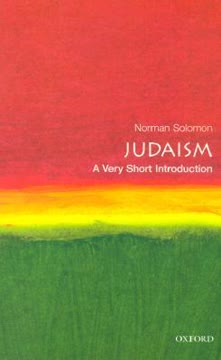
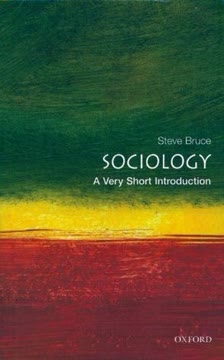

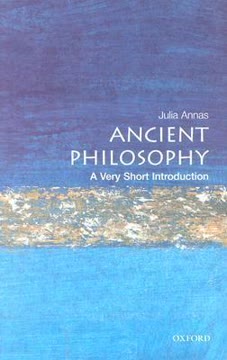
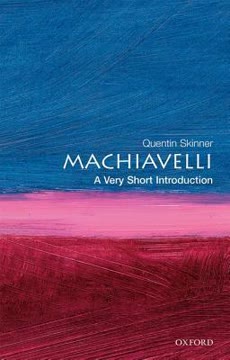
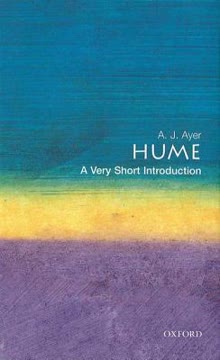



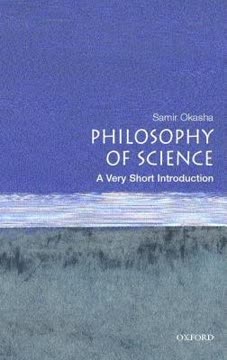
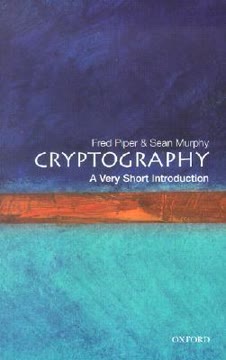
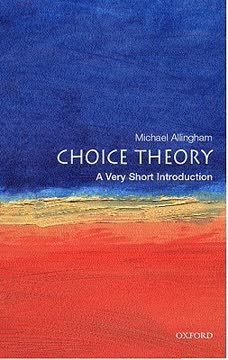
Similar Books





Download PDF
Download EPUB
.epub digital book format is ideal for reading ebooks on phones, tablets, and e-readers.







